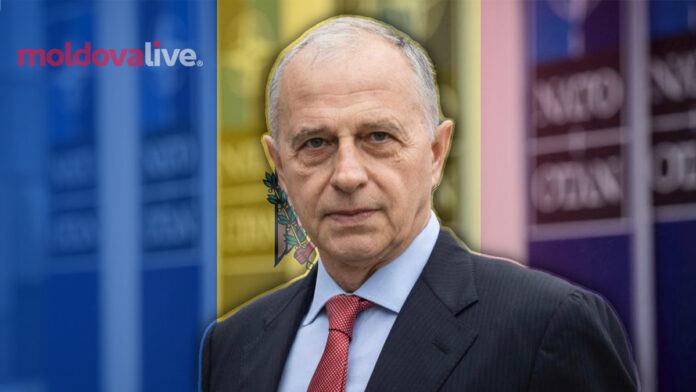Mircea Geoană, the deputy general secretary of NATO, told Digi24 that the Republic of Moldova is trying to get out of the sphere of influence of the Russian Federation, and NATO, the EU, and Bucharest will help it in this endeavor. The NATO official also stated that now the context is unique, and the influence that Russia can still exert on the countries of the former empire is in sharp decline.
In the speech delivered on Thursday at the Davos Forum, the Deputy Secretary General of NATO also spoke about the recent requests for anti-aircraft systems made by the President of the Republic of Moldova.
“The requests for anti-aircraft systems from Chisinau came from the moment when the cruel reality appeared that the Russian Federation has no limits in terms of its desire to control the former empire, in one form or another. So, there are no indications of military capability that the Russian Federation will be able to make the Odesa-Transnistria junction. It is a military operation that today is not in Russia’s capacity, but strategically, as the Russian Federation wants to keep Ukraine in its sphere of influence, it is clear that it also wants to keep the Republic of Moldova. Can he keep it? It depends on us and Moldovans. So, at the moment the Republic of Moldova, after 30 years since the declaration of Independence and after the sinful war in Transnistria which led to this situation that we all know, just like in Georgia, just like in other areas, has a real chance to escape from this difficult geography and come with us and the other EU partners to civilized Europe and I think it is a moment that we need to understand in its true symbolism. For us, for the Romanians, it has additional relevance, it is obvious, and that is why I welcome the way in which Romania, both in the explicit things and in the more subtle things it does, has support at the level of the NATO leadership, which I encourage .”
FOR THE MOST IMPORTANT NEWS, FOLLOW US ON TELEGRAM!
Asked what NATO’s attitude will be in the future, Mircea Geoană added: “I was discussing with the Moldovan leaders and I think they are right. They have a Constitution of neutrality, made in the logic of after 91. It is their decision what kind of Constitution they want. It was a complex situation, but even being neutral doesn’t mean you have to be passive, it doesn’t mean you have to be weak militarily. That is why the example of Switzerland is an interesting example. The lessons learned after this war and the way the Russian Federation behaves with its neighbors, I am convinced will create consequences in Georgia and the Republic of Moldova and, obviously, in Ukraine. It is clear that this force of influence of the Russian Federation in the periphery area is decreasing and this is seen in the strategic exchange. All these countries are trying to find options in other directions as well, including with the West.”
He also added that, in the near future, he would visit Chisinau, together with a European Union Commissioner, precisely to reiterate the support of NATO and the EU for the efforts of the Republic of Moldova to leave the zone of influence of Russian Federation.


